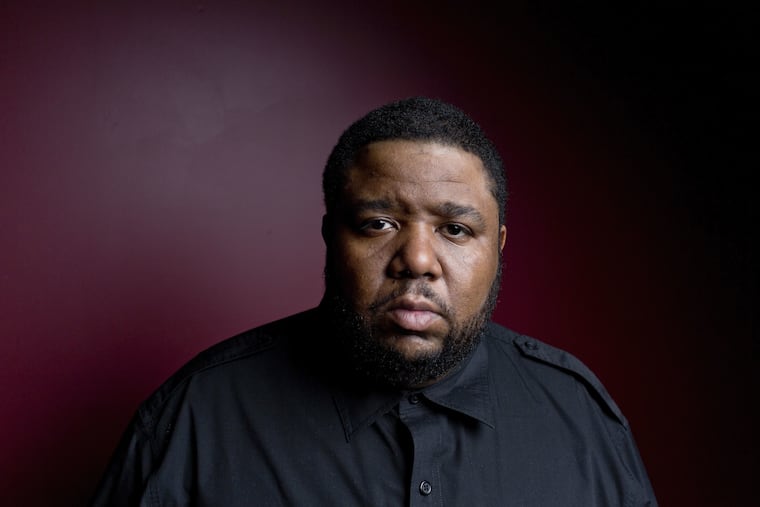MacArthur ‘genius’ Tyshawn Sorey is Opera Philadelphia’s new composer-in-residence
The opera company is also changing a key aspect of its composer-in-residence program.

Opera Philadelphia’s next composer-in-residence is a musical polymath whose work bridges a wide range of influences and genres.
Tyshawn Sorey — a percussionist, pianist, conductor, trombonist, composer, and 2017 MacArthur Fellow — will spend the next year or two immersing himself in the elements of a genre new to him. Sorey grew up in Newark, N.J., and is a professor at Wesleyan University.
Although he has never written an opera, his appointment grew out of Cycles of My Being, a set of emotionally complex songs he composed for Opera Philadelphia exploring the African American male experience. It premiered at the Kimmel Center in 2018.
“The collaboration with Opera Philadelphia gave me the courage to pursue this,” Sorey said. “When we finished the song cycle, it became apparent that we should collaborate further on bigger things.”
The residency begins this week and runs for one year with an option for a second. After that, the company hopes the residency will lead to the commissioning of a work from Sorey, says Opera Philadelphia general director and president David B. Devan.
Sorey’s residency this season is funded by the final year of a three-year grant from the Andrew W. Mellon Foundation.
Until now, Opera Philadelphia’s composer-in-residence program was open to anyone who wanted to apply. Starting with Sorey, recipients will be chosen by the artistic team at Opera Philadelphia.
The opera company is laying the groundwork for funding from foundations and individuals for the second year of the new composer-in-residence program, says Devan, and is waiting to advance those conversations until it has more detail on what form Sorey’s residency will take.
“We have patrons who are deeply connected to certain artists’ work, and people who came in as donors who had no experience with Opera Philadelphia but were there because there was an artist they cared about,” Devan said.
Sorey, 39, based in New Haven, Conn., is an assistant professor of music and African American studies at Wesleyan. He has an undergraduate degree from William Paterson University, a master’s from Wesleyan, and a doctorate from Columbia University.
As a composer and performer, he embraces an unusually large set of influences, including Eastern music, Western classical music, improvisation, and atonality, according to his MacArthur Foundation biographical sketch.
He created "chameleonic soundscapes that fluidly adopt shifting moods, colors and styles,” the New York Times wrote this year after a performance at the Metropolitan Museum of Art of Perle Noire: Meditations for Joséphine, a tribute to Josephine Baker with soprano Julia Bullock.
Under its previous program, Opera Philadelphia engaged six composers between 2011 and 2019: Lembit Beecher, Missy Mazzoli, Andrew Norman, David T. Little, David Hertzberg, and Rene Orth.
For Cycles of My Being, Sorey teamed up with tenor Lawrence Brownlee and poet Terrance Hayes.
“Watching him and Larry work together was very special, and there was just a humanity to the work, but also an unrelenting focus on leaning into complication musically,” says Devan. “You were just like, ‘Wow, this is a born collaborator who has something important to say with music,’ and I think those are the two critical ingredients to writing an opera.”
While here, Sorey will have access to an entire range of ingredients, studying concepts like breath support, tessitura (the range of the voice where it sounds best), and balance between orchestra and voices.
The aim is “getting to know the operatic art form," says Sarah Williams, Opera Philadelphia’s new-works administrator. That means bringing in singers for him to work with and ask questions of, she says.
Sorey says he is grateful to have this kind of gradual learning runway. He hasn’t begun to think about potential subject matter for the work he will ultimately produce, or even the parameters of the piece.
“I don’t necessarily see some big grand opera, like Monteverdi," he said, "but I am looking to do something that is totally myself within the opera genre.”